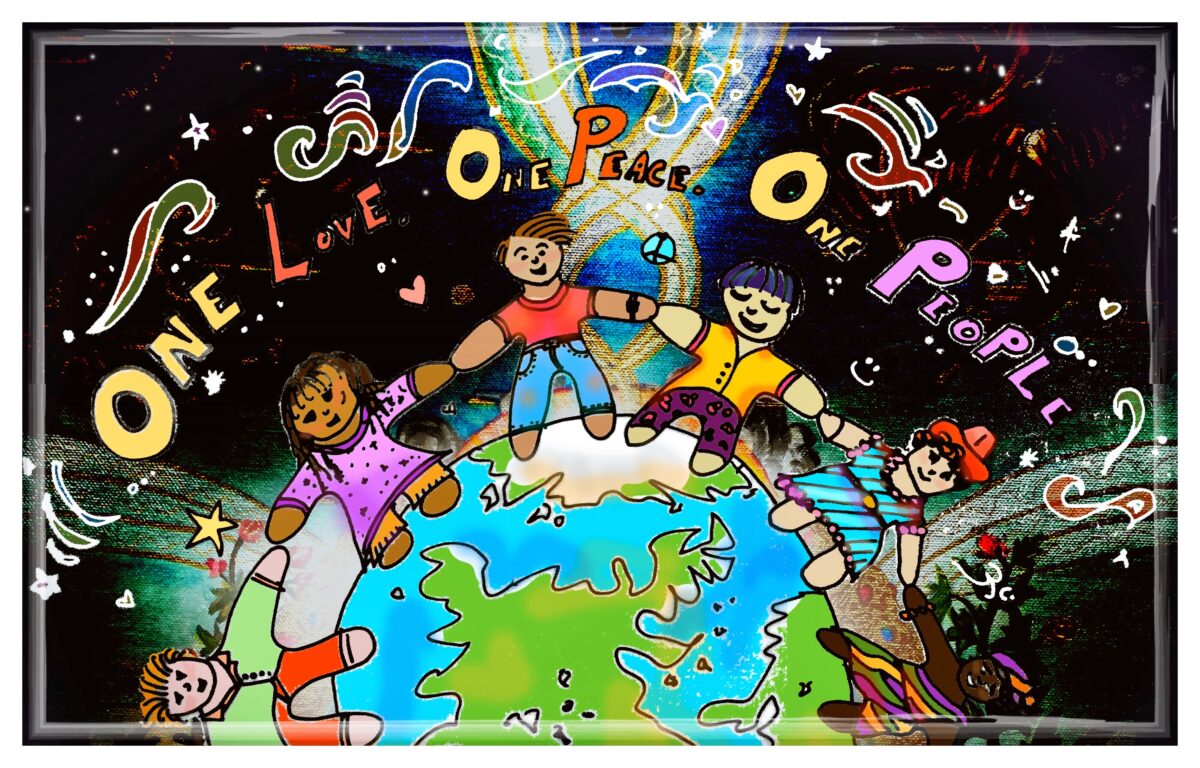We are currently in a very troubled time in society. Rage, anger, hatred, and fear are often at the forefront of our media. Terror and hate crimes seem to run rampant. Fears of others due to their race, sexuality, gender identity, religion, or social background are incredibly blatant. As I write this article, the massacre at Pulse nightclub in Orlando, Florida has just recently occurred. Over one hundred individuals were physically injured or killed – and untold others have been emotionally scarred by this senseless violence.
Being born in America in the late twentieth century, I have been fortunate to be raised in a culture of relative peace. But over the last decade, and particularly through the rise of social media and online news reporting, violence has been sensationalized and made more immediately pressing. We have become inundated with scenes of horror. And at the same time, we have increasingly become desensitized to it. Our “entertainment” has become increasingly brutal, almost to the point of gladiatorial events. Video games and mainstream films are dominated by graphic violence. These systems almost purport the idea that an acceptable way to deal with anger and frustration is to go hurt another individual. That taking a life costs very little and is not terribly damning, according to America’s entertainment.
Moreover, our desensitization extends even more heavily to groups that do not directly include us. “What does it matter if tens of thousands of people are slaughtered in Syria; we don’t know them, they’re a different culture, and that’s just part of what ‘those people’ do. Who cares if sixty-four citizens of Chicago were shot over Memorial Day weekend, as they are predominantly poor, black men; and that doesn’t really include me. So what if a room full of LGBTQ-identified people are lit up by a radicalized homophobe with a semi-automatic rifle? I’m not gay; it’s not my problem.” It seems that feeling separateness and apathy has become the dominant perspective of Americans and the West in general.
And here’s the problem: if we just identify with the small group with which we surround ourselves, then – you’re right – it doesn’t matter. If we just identify with being white: it’s a black people problem. If we’re Christian: it’s an Islamic problem. If we’re straight: it’s a gay problem. If we live in a first world country: it’s a third world problem. Whatever your vantage may be, it’s easy to isolate oneself and decide it really doesn’t matter because it does not immediately affect you. With the rise of social media, online messaging, and increasing globalization, the goal we must all strive to reach is the understanding of this: all of these struggles are HUMAN problems.
It does not matter your race or ethnographic heritage, it does not matter your religious ideology or spiritual tradition, it does not matter your country of residence or gender identity: the welfare of all human beings is of concern for each of us. Violence against another living creature – human or animal – is NEVER an appropriate act. Intentionally causing pain to another being is ALWAYS wrong and unjustified. I comprehend that we all have hurts, fears, prejudices, misunderstandings, and more; but it is our work as human beings to resolve those conflicts WITHIN OURSELVES. It is our task to become free, loving, accepting, and tolerant inside. It’s too lofty of a goal to say we must love and embrace one another as brothers and sisters, but we can surely achieve tolerance and compassion for our fellow humans. These are some of the simplest skills we teach small children in preschool; surely adults can conquer such.
This is a goal every citizen of Earth can attain within his or her lifetime: cultivating empathy for the whole human race. Teach your children to respect and listen to their classmates. Console a neighbor in his time of suffering. Forgive the woman who wronged you in the past. Speak love. Teach kindness. Practice forgiveness. And remember two of the “golden rules” I heard frequently while growing up: “Do unto others as you would have them do onto you” and “If you haven’t anything nice to say, then don’t say it at all.” Those simple childhood guidelines could have worked wonders had the attackers in any of the recent shootings taken them to heart.
We can choose to focus on the discord, the pain, the suffering – or we can choose to focus on the good. Pay attention to the people in your community helping one another. Thank the stranger who went out of her way to pay you a small courtesy. Bake some cookies for a friend just to let them know that you love them and wish them a nice day. Find ways to cultivate kindness, generosity, heartfelt gratitude, and love. We can only change the world by changing ourselves. So let’s start with that. Begin espousing the behaviors and views that you want the media and the world around you to exhibit. Recognize your place as a global citizen. We’ve got a long way yet to go towards unity; but we can make it there, step by step and inch by inch, if we just put in a little work ourselves every day.
Namaste (the peace within me bows to the peace within you, inside we are all one).
Art and words by: Kaelan Strouse

i find this reflection
meaningful 🙂
Thank you so much. It’s so sad that these reflections need to be made.
of course, it’s sad.
while the poisons
of greed, hatred & ignorance
have been spoken of
for thousands of years.